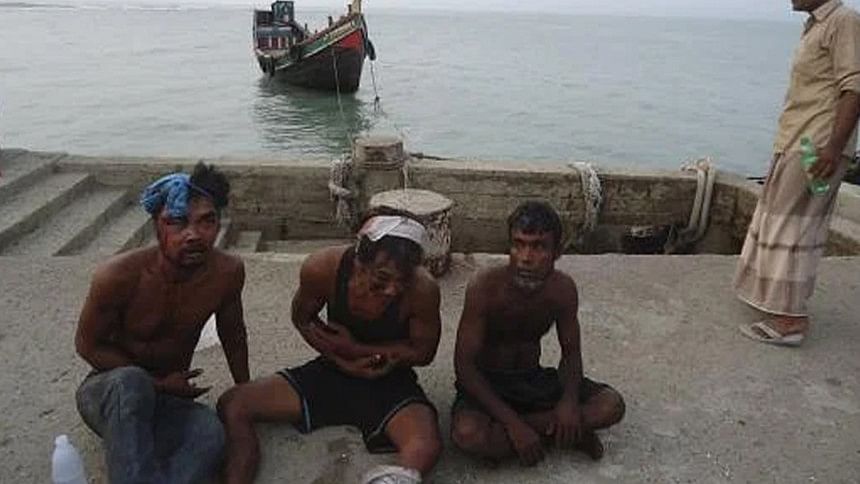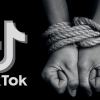Human trafficking rife, conviction rare

Only one person was convicted in a human trafficking case in Bangladesh in 2020, according to a UN report highlighting the concern over low convictions of the crime.
The number of people convicted in trafficking cases was nine in 2019, up from four in 2018, said the report of the United Nations Office on Drugs and Crime.
Dhaka division saw the highest 40 percent of human trafficking cases filed in 2020, followed by Khulna (22 percent) and Chattogram (17 percent).
A total of 373 people were arrested in 2020 while the number of arrestees was 199 in 2019 and 688 in 2018, said the report titled "Trafficking in Persons in Bangladesh", which was shared yesterday during the regional launch of UNODC's global report on "Trafficking in Persons 2022".
The report, which was produced by the UNODC with support from the government, attributed the lack of resources, bribery by traffickers and insufficient evidence to the low conviction.
It, however, said only one conviction in 2020 was due to reduced capacity caused by the pandemic.
"Nevertheless, the number of convictions from previous years illustrates an equally low level compared to a much higher number of arrests," it said.
Trafficking cases should be closed within 180 working days. However, in practice, the process may be far more protracted due to a lack of resources, it said, adding that investigations are further hindered by high levels of corruption.
The report pointed out that economic need was the most significant determinant of trafficking in persons in Bangladesh.
The other factors are discrimination and marginalisation often in combination with economic need creating multiple layers of vulnerability for certain people to fall into trap of traffickers.
"Poverty and lack of prospects for income generation may lead people to accept risky employment opportunities as 'the marginal gain potentially derived from the prospective job opportunity significantly outweighs the cost of inaction'."
Though the country saw its per capita income rise and poverty rate decline between 2009 and 2019, many people in rural areas remain relatively poor.
This relative lack of economic opportunities functions as a push factor, enticing people to seek employment abroad under promises of better wages and jobs in countries in North America, Europe and the countries of the Gulf Cooperation Council (GCC).
While victims from all Bangladeshi regions are detected in the countries of the GCC, those districts sharing borders with India near larger city centres disproportionately report repatriated victims.
For example, Khulna, which shares its western border with West Bengal and is not far from Kolkata in India, reported the most repatriated victims in 2020.
Climate change is also emerging as a root cause of trafficking, according to the report.
The study's findings indicate traffickers targeting victims affected by environmental disasters caused by climate change such as floods and droughts that erode livelihoods and heighten levels of vulnerability.
Bangladeshi trafficking victims are detected in many parts of the world, with the top destinations being countries in the GCC, Thailand, Malaysia and India as well as Europe and the Americas.
Between January 2015 and May 2021, on the Central Mediterranean Route, linking North Africa to Italy, Bangladeshis comprised 5.7 percent of all those arriving on this route and comprise the main citizenship group of non-African origin.
Bangladesh is also used as a transit country by traffickers to transport South Asian victims to other destinations, it added.
Since 2002, the Bangladesh government has been implementing the national action plan to prevent and suppress human trafficking, said Aminul Islam Khan, senior secretary of the home ministry, at the launch of the report.
This helped in transforming the government's commitment to combat the crime, he said.
Mahdy Hassan, national programme coordinator (human trafficking and smuggling of migrants) at UNODC, said that in combatting human trafficking, there is room for improvement in inter-agency coordination in Bangladesh.
Collecting data on human trafficking was a significant challenge for the study, he added.
The global report, which covers 141 countries, shows the number of convictions for trafficking offences globally fell by 27 percent in 2020 from the previous year, while for the first time in 20 years, the number of victims detected globally fell (by 11 percent) in 2020 amid the pandemic from the previous year.

 For all latest news, follow The Daily Star's Google News channel.
For all latest news, follow The Daily Star's Google News channel. 







Comments